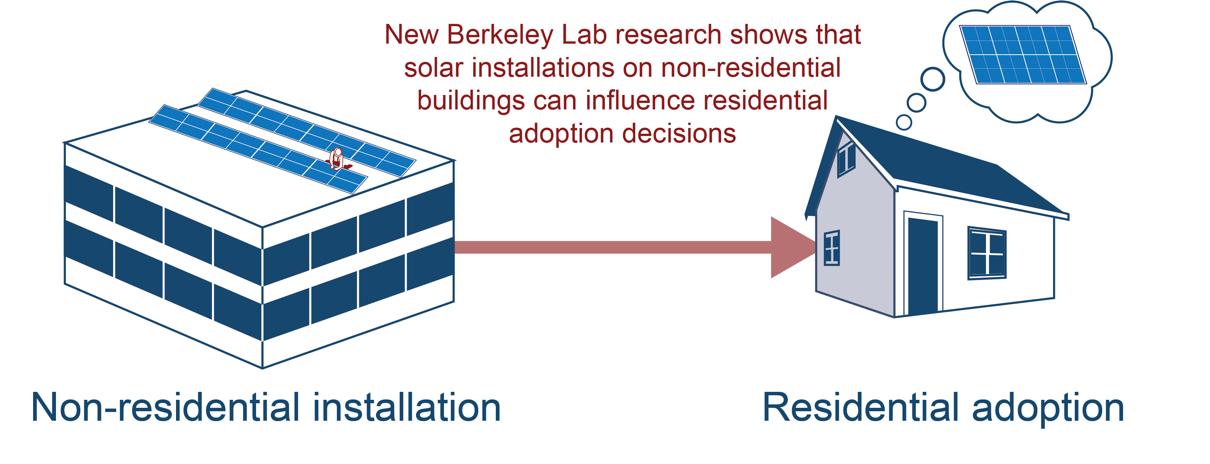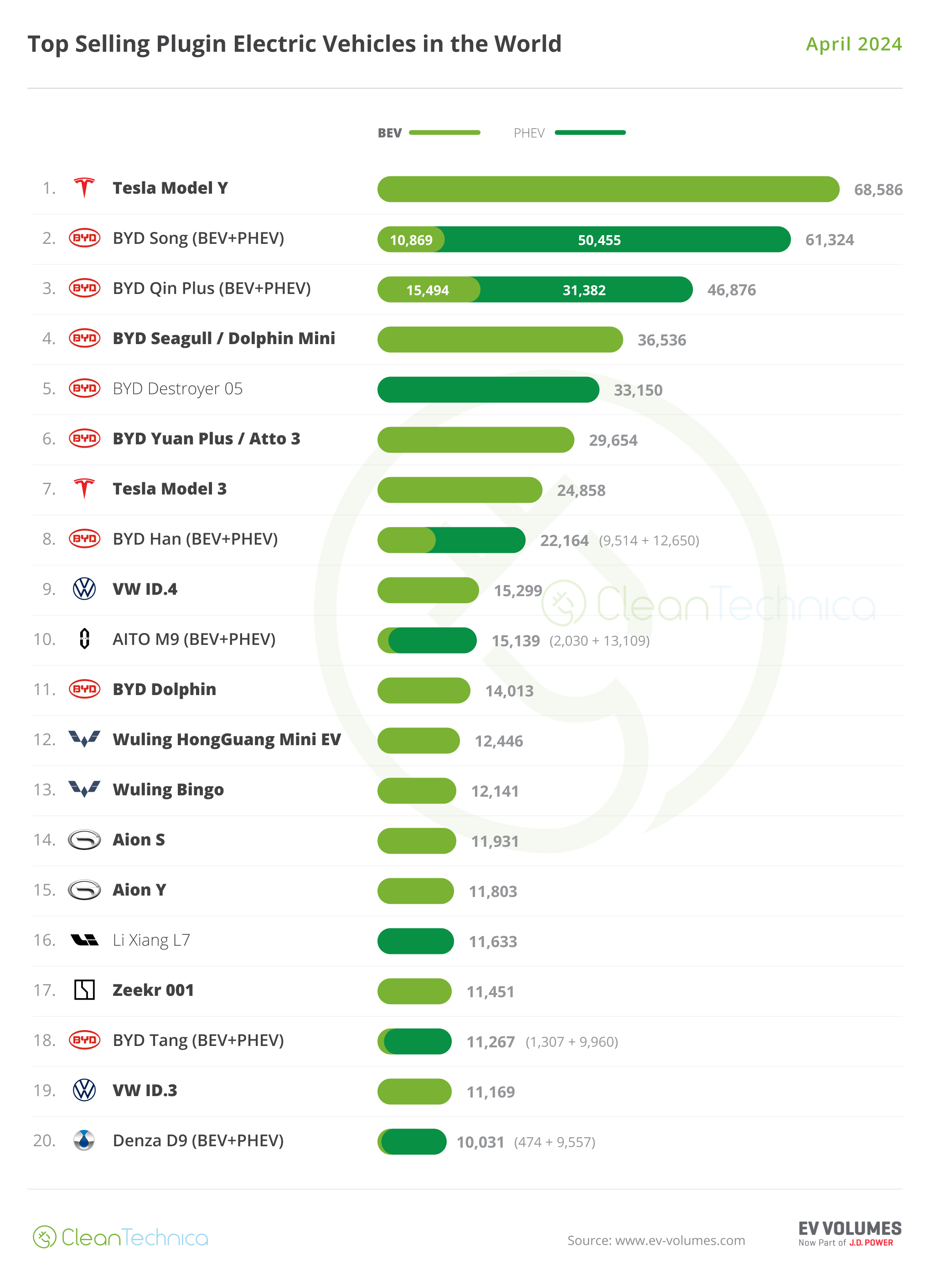Sign up for daily news updates from CleanTechnica on email. Or follow us on Google News!
Previous research has shown that social influence can drive rooftop solar adoption. Research to date has primarily focused on influence between households, but certain forms of social influence may also exist between non-residential and residential installations. For example, an individual could decide to adopt after seeing solar panels installed at a local business or after learning that a local institution is powered by solar. The potential influence of non-residential solar systems on residential adoption decisions has been under-explored.
In a new paper, researchers from Berkeley Lab, the National Renewable Energy Lab, and Tufts University explore whether and to what extent non-residential solar installations influence residential adoption trends in surrounding neighborhoods. The researchers reach three main conclusions.
First, the data suggest that non-residential solar installations on businesses, government buildings, schools, and houses of worship increase residential solar adoption. Across various models, the results suggest that residential adoptions increase by around 1 to 4 adoptions per quarter in areas where a non-residential system has been installed.
Second, the estimated magnitude of influence from non-residential buildings is comparable to the estimated magnitude of influence from residential buildings. That is, the research suggests that individuals are about as likely to be influenced to adopt solar by a nearby non-residential installation as by a nearby residential installation.
Third, the results suggest that the degree of influence varies across different building types, though further research is required to estimate differences more precisely and the source of those differences. The researchers posit that the relationships between different types of institutions and their communities could explain differences in influence. For instance, schools and houses of worship directly engage with local communities in ways that have been demonstrated to influence behavior in other areas and could likewise influence solar adoption decisions.
Like other solar influence research, the Berkeley Lab study only estimates the quantitative impact of influence but does not identify how or why that influence occurs. Future research could explore specific mechanisms for non-residential influence on residential solar adoption decisions, such as visual cues, direct interactions between non-residential institutions and communities, installer-related mechanisms, or other factors.
The Berkeley Lab study, Impacts of non-residential solar on residential adoption decisions, is published in the Journal Frontiers in Sustainable Energy Policy, and is available here. The authors will host a webinar on February 7, 2023, at 11:00 PT/2:00 ET. Register here: https://lbnl.zoom.us/webinar/register/WN_vvJ_GreUQAq2p1v-YJ455g.
For questions on the report, feel free to contact Eric O’Shaughnessy at Lawrence Berkeley National Laboratory (720-381-4889, EOShaughnessy@lbl.gov).
Funding support was provided by the U.S. Department of Energy Solar Energy Technologies Office as part of the Solar Energy Innovation Network Initiative.
Originally published on by DOE, Berkley Lab Electricity and Markets Policy, Lawrence Berkeley National Laboratory.
Have a tip for CleanTechnica? Want to advertise? Want to suggest a guest for our CleanTech Talk podcast? Contact us here.
Our Latest EVObsession Video
I don’t like paywalls. You don’t like paywalls. Who likes paywalls? Here at CleanTechnica, we implemented a limited paywall for a while, but it always felt wrong — and it was always tough to decide what we should put behind there. In theory, your most exclusive and best content goes behind a paywall. But then fewer people read it!! So, we’ve decided to completely nix paywalls here at CleanTechnica. But…
Thank you!
CleanTechnica uses affiliate links. See our policy here.





